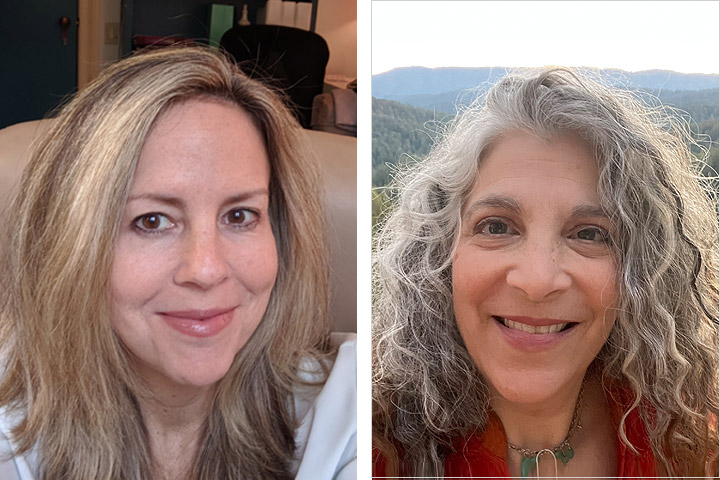Why End-of-Life Conversations Matter—and How to Have Them

Difficult Conversations is a series of articles about the life challenges pancreatic cancer patients and their loved ones face.
Death is a critical part of life, a milestone that every one of us will traverse at some point.
While patients, caregivers, and even health professionals often shy away from discussing the end of life, having open conversations about patients’ wishes and desires—about how they want to spend their remaining time—can be life-changing.
“The end of life requires people to make countless decisions in a very short time when emotions are running high,” says Lauren Shaffer, a licensed clinical social worker based in New York City. “Having these discussions ahead of time can help alleviate a burden for your loved ones when they’re faced with making difficult decisions on your behalf.” Plus, initiating the discussion allows you to be active in your own care, even while you’re grappling with death.
Deciding When to Stop Cancer-Directed Therapies
Many patients and family members struggle with deciding when to shift from cancer-directed and cure-focused treatment to comfort-focused care. Feelings like anger, grief, despair, and confusion are commonplace, and family members and loved ones may have different ideas about how to proceed.
“For some people living with pancreatic cancer, there’s a lot to lose from treatments like chemotherapy and Whipple surgeries compared to what there is to gain,” says Dawn Gross, M.D., Ph.D., a palliative care physician at the University of California San Francisco and founder of the hit podcast Dying to Talk. “That doesn’t mean you give up hope, but it begs an answer to the question, ‘What are you hoping for?’ Once you have that conversation, you’ll be better equipped to make decisions.”
Unfortunately, patients and family members are not always aligned about when to stop cure-focused treatments. If that’s the case, it’s important for family members to take a step back and check in with the person navigating pancreatic cancer. Shaffer suggests that family members “follow questions like, ‘What are you worried about?’ and ‘Where do you see treatment going?’ with neutral questions like, ‘How can we best support you?’” She adds, “For some patients, talking about what’s important to them is empowering.”
Starting the Conversation
Even when you recognize the importance of end-of-life conversations, finding the right words and making sure you cover the key points aren’t always easy. But knowing where and how you want to die, and which treatments you want, can illuminate what matters most for both you—the person dying—and your survivors.
“Having a life-limiting diagnosis like pancreatic cancer provides an opportunity to shine the light even more brightly on what’s important to the patient,” Gross says. And it benefits loved ones, too. Studies show that when people have meaningful conversations about end-of-life decisions, survivors report feeling less guilt and distress and have a more seamless grieving process. Here’s how to get the ball rolling:
- Invite your loved ones to the discussion. Whether you’re the patient or a caregiver, planning what you’re going to say and where you’re going to say it, and when, allow you to control the narrative. Start with your introductory statement, suggests Gross. “Something like, ‘I’m requesting that you allow me to have this difficult conversation with you because I think it will make things easier for all of us,’ or ‘I know what I’m asking you to do is hard, and I’m asking you to do it anyway because I love you and this matters.’” Make sure your selected words are compassionate and firm. Need help starting the conversation? Ask your clinician to speak honestly with your loved ones about your prognosis, while understanding that they don’t have a crystal ball.
- Be clear about your care. Perhaps the most important decision you will make is who you appoint to make decisions for you when you’re unable. The key is choosing someone who can help ensure you receive the care you desire at the end of life, and who is prepared to advocate for you loudly and clearly. You can make their job easier by completing Physician Orders for Life Sustaining Treatment (POLST) and/or Medical Orders for Life-Sustaining Treatment (MOLST); note that these programs vary from state to state. “Both forms outline which life-sustaining treatments you would agree to and which you would decline,” Gross says. “But unlike a living will, these forms are doctors’ orders, so they must be followed like a prescription. A living will, on the other hand, relies on guidance from the proxy to dictate healthcare decisions.”
- Request deserved assistance. It’s not uncommon for family members to struggle accepting the information you’re delivering. Calling in support from people who are on the front lines every day can help ensure you cover all the bases. In fact, according to the National Comprehensive Cancer Network consensus guidelines, patients with pancreatic cancer should have palliative care on board right after diagnosis, not at the time of progression or relapse. “Bringing in palliative care does not mean you’re giving up,” Gross explains. “You can still choose cancer-directed therapy. But palliative care helps ease your distress along the way of whatever path you choose, acting as a sort of way station that allows you to explore what matters most to you.”
- Get curious. Many of us haven’t taken the time to really get curious about what we need as we near the end of life. Even if you’re healthy now, there’s a real benefit to exploring what would feel most supportive to you as you’re dying. Fortunately, there are myriad tools available to help you clarify what’s most important to you. A few solid starters: The “Conversation Starter Guide,” with tools and tips for end-of-life care planning; the Death Deck, a card game that includes multiple-choice and open-ended questions around death; and GoWish, a card game designed by Coda Alliance to help you get clear on what matters most to you, not only in death but also in life.
- Be patient. Not everyone in your circle may be on board with your wishes, or even an end-of-life conversation, straight out of the gate. Give them time. Creating a “death plan” isn’t a once-and-done effort. “Keep talking to your loved ones,” suggests Shaffer.
Although it can feel uncomfortable to have these conversations, you may find you feel a sense of peace once you’re sure that your wishes have been heard. “When you give yourself space and permission to speak from the heart, to say, ‘I’m scared . . . I don’t want to die,’ you open the door to ensuring you are supported in living your life fully through your final exhale,” Gross says.
Guiding Questions to Help Shine a Light on What Matters Most
Hundreds of questions can help guide end-of-life conversations. The suggestions here are just a starting point:
- What do you value most about your life?
- Do you want to pursue every possible treatment to extend your life, knowing that many of these treatments may negatively impact your quality of life?
- If you were unable to eat or drink, would you want a feeding tube or intravenous hydration, even if it could cause complications and might not help you live longer?
- Do you want to die at home?
- Do you want to be pain-free, even if it means trading comfort for alertness?
- Who do you want by your side at the end of life? Do they know? Tell them now.





